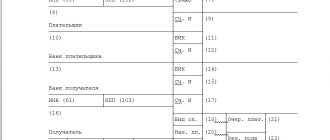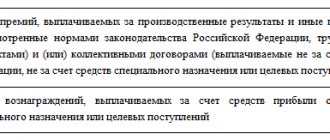Criteria for traveling work activity
The permanent activity of an employee related to his constant official movements is divided into labor (Article 168 of the Labor Code of the Russian Federation):
- on an expedition;
- in the field;
- on my way;
- traveling work.
- The worker spends a significant proportion of his working time outside the company's premises, performing his actual duties at this time.
- The employee's primary responsibilities include travel.
- Other criteria are determined by the employer individually in relation to a specific position.
Clear definitions of the nature of the work in question are not established by law, so the enterprise itself establishes them, taking into account a number of defining characteristics, when:
By internal regulatory document, the organization defines positions with the type of work that involves moving (Article 168, Part 2 of the Labor Code of the Russian Federation) and fixes the service territory for production movements.
The limit for a territory is indicated by an individual subject of the Federation or its region, a number of subjects or the entire territory of the Russian Federation.
Results
Whether or not to draw up a route sheet is up to the organization to decide for itself.
There are no strict requirements for the presence or form of this document in the law. If you decide that you need such a document, then you know where you can find a form that meets all your needs, regardless of whether this document is drawn up for internal purposes or for accounting. You can find more complete information on the topic in ConsultantPlus. Free trial access to the system for 2 days.
Differences between travel and business trips
The traveling nature of work is incompatible with the concept of a business trip, which is an employee’s trip for a limited period of time on a production assignment and by order of the employer from the place of permanent employment (Article 166 of the Labor Code of the Russian Federation).
A specialist sent on a business trip retains his place (position) and average salary with compensation:
To arrange a business trip, an order is issued at the enterprise, the employee is issued a work assignment and a certificate (travel permit). The business traveler receives money in advance for expenses (travel, accommodation, daily allowance). Upon returning from a business trip, the employee submits a report on the work done, the amounts spent and attaches documents on all types of expenses.
In contrast to the periodic nature of business trips (as needed), traveling activities are an integral element of the employee’s work function and are permanent in nature. The conditions that determine the specified nature of work are necessarily reflected in the labor agreement of the parties (Article 57 of the Labor Code of the Russian Federation).
Attention! All trips within the framework of the performance of official duties are paid at the salary agreed upon when drawing up the employment contract. Payment based on average earnings applies only to business trips (Article 167 of the Labor Code of the Russian Federation).
If an employee registered for work with a mobile nature within one locality is sent on business to another city, the movement must be formalized in the form of a business trip.
What conclusion can be drawn
Thus, RHR is a labor organization process in which an employee is forced to constantly travel between cities and countries to directly perform his duties.
This concept should not be confused with a regular business trip, since there is almost nothing in common between them (different goals, tasks, activities performed). Regulation of RHR allows employers and employees to create long-term reliable relationships at all levels of interaction.
Full information about the traveling nature of the work is presented in this video.
What documents will need to be completed?
The presence in the company of employees with a traveling option of work raises before the administration the issues of documenting this type of activity and compensation for expenses incurred by the employee in accordance with the law.
Options for assigning a category of work associated with constant movement (Article 168 of the Labor Code of the Russian Federation):
To properly keep track of expenses for mobile work, you must:
The establishment of allowances is the right, but not the obligation, of the enterprise administration, except in situations stipulated in legislation or industry agreements.
Obligatory payments
As stated above, Art. 168.1 of the Labor Code of the Russian Federation does not contain any indication of the employer’s obligation to compensate expenses for employees engaged in performing work of a mobile nature. The competent authorities do not explain this issue in their Letters {amp}lt;5{amp}gt;. There is an opinion that mobile work should be classified as a type of work on the road, which, in general, even follows from the definition contained in the Federal Industry Agreement.
We believe that it is advisable to resolve disagreements on this issue in the courtroom, provided that:
- employment contracts contain a provision regarding the flexible nature of the work;
- there is a local regulation establishing the amount and procedure for reimbursement of employee expenses;
- documents have been drawn up confirming the fact that employees have performed work of a mobile nature (for example, timesheets recommended for the use of automated control systems).
Note! It is important to ensure that the words “allowance” and “additional payment” are not used in the listed documents, since they will give controllers the opportunity to make additional charges on formal grounds, citing the fact that allowances and additional payments are considered as part of the salary, subject to personal income tax and insurance contributions.
Using the example of Court Resolutions on “traveling” daily allowances, we were convinced that the use of the name “surcharge” does not prevent individual courts from taking the side of enterprises (Resolutions of the Federal Antimonopoly Service of the Moscow Region dated March 12, 2012 N A40-47608/11-91-203, FAS SZO dated 01/18/2010 N A44-2439/2009). However, it is better to avoid these words.
Having decided to recognize “moving” payments as compensation established by current legislation (in this case, Article 168.1 of the Labor Code of the Russian Federation in relation to work on the road), the organization may not include such amounts in the total annual income of employees and not withhold personal income tax on the basis of clause 3 of Art. . 217 of the Tax Code of the Russian Federation, and also not to charge insurance premiums from these payments by virtue of paragraphs. “and” clause 2, part 1, art. 9 of Law N 212-FZ {amp}lt;6{amp}gt; and pp. 2 p. 1 art. 20.2 of Law N 125-FZ {amp}lt;7{amp}gt;.
Regarding the calculation of income tax, the following should be noted. The Ministry of Finance, explaining the possibility of accounting for “traveling” payments for tax purposes, in some letters recognized such expenses as other expenses falling under paragraphs. 49 clause 1 art. 264 of the Tax Code of the Russian Federation (Letter dated August 18, 2008 N 03-03-05/87 {amp}lt;8{amp}gt;
), and in others he indicated that they, by virtue of paragraph 3 of Art. 255 of the Tax Code of the Russian Federation must be included in labor costs (Letters dated 06/05/2008 N 03-03-06/1/346, dated 05/07/2008 N 03-03-06/1/302, dated 06/01/2007 N 03-03 -06/1/358, dated 04/19/2007 N 03-06-06/1/250). In our opinion, with regard to both “traveling” and “mobile” payments, the organization has the right to provide in its accounting policy as part of which expenses they will be taken into account (clause 4 of Article 252 of the Tax Code of the Russian Federation).
In conclusion, we would like to add that ACP drew attention to the possibility of paying (in addition to the daily allowance) a wage supplement. In particular, clause 2.4 of the “manual” states: if employees are engaged in work of a mobile nature for at least 15 calendar days per month, when forming a remuneration system in the organization, they are recommended to establish bonuses for the mobile nature of work.
The recommended bonus amount is up to 20% of the monthly tariff rate (official salary). The specific amount of the bonus is approved by the employer, taking into account the opinion of the elected body of the primary trade union organization in the manner established by Art. 372 Labor Code of the Russian Federation. It is clear that there are no grounds for exempting the allowance from personal income tax and insurance contributions. In this case, the enterprise is given the opportunity to take into account the costs of paying the premium for the purposes of calculating the tax base for income tax.
T.Yu.Koshkina
Magazine editor
Accounting
and taxation"
Registration procedure
The provision on the type of employment can be in the form of a separate document or be an addition to the company’s Rules of Procedure. In any form, the document must be approved by order of management. Employees of the organization for whom the type of employment in question is established must familiarize themselves with the document and sign with their own hands (Article 68 of the Labor Code of the Russian Federation).
If a traveling option of employment is established for a worker when he registers with a company, then this requirement is fixed in a clause of the employment contract. If such a need arose during the employee’s activities, then the condition is formalized in an additional agreement to the contract. In case of disagreement of the employee and with full legislative compliance with the procedure, the administration of the enterprise has the right to use the norms of the Labor Code of the Russian Federation (Article 74) up to the termination of the labor relations of the parties.
The type of employment should also be reflected in the employment order (for the admission of a new employee) and the order in free form (for an existing employee).
An order establishing the type of activity is necessary to notify certain officials of the corresponding status. The text of the employment contract does not relate to public information, therefore, for example, an accountant learns about the need to accrue a bonus to an employee directly from the order.
Orders in connection with traveling activities
In an organization, the list of positions assigned to a traveling type of work may be subject to adjustments. In order not to change the entire Regulation, it is possible to determine such a list by a special order of management.
The procedure for recording trips and document flow is established by the enterprise independently (as opposed to a business trip). Forms of official assignment or traveler’s certificate (for developing a route sheet) can be used as a sample.
In any document executed, the signature of the management and the signature of the employee are required.
Attention! An order to send an employee with a traveling nature of work on a business trip is not issued.
If travel on duty is carried out using company vehicles, then it is mandatory to issue a waybill (in one copy) issued to the driver (against signature).
Mandatory points of travel documents (Order of the Ministry of Transport of the Russian Federation No. 152):
It is mandatory to affix the day of issue, seal and stamp of the organization that owns the vehicle.
The waybill is registered in a special journal, the shelf life of which in the organization must be at least 5 years. It is also advisable to register service assignments with notes about the destination, purpose, and time of arrival at the sites.
A documented mobile type of employment affects the reduction of the company’s administrative costs, and in a number of situations, the reduction of expenses for travel and wages for employees.
Example of an order approving a list of positions
Limited Liability Company "AAA" (LLC "AAA")
Order No. 1001-P on approval of positions for employees whose permanent work is traveling in nature
Guided by Art. 168.1 Labor Code of the Russian Federation,
Establish the traveling nature of work for employees hired and rehired for the following positions: - courier; - driver; - insurance agent; - legal assistant.
General Director _________/Ivanov A.A./
Route sheet for driver or courier: form and sample
As we said above, there is no officially approved form of the route sheet. There is also no list of required details for this document. Therefore, each company makes it for itself, including exactly those lines and columns that will ensure the achievement of the corresponding documentary goal.
IMPORTANT! If the route sheet is used for accounting and tax purposes, it must contain all the details of the primary accounting document, which are established by Art. 9 of the Law “On Accounting” dated December 6, 20211 No. 402-FZ.
Usually the details of the route sheet include the following.
In the header of the document:
- the name of the document is “Itinerary”;
- his number;
- name of the compiling organization;
- date of completion;
- Full name and position of the employee to whom it was issued.
The following is a table describing the route, indicating:
- name of destination;
- his addresses;
- purpose of the trip;
- type of transport;
- details of the document confirming the delivery or visit of the employee;
- the time of his arrival;
- signatures of the receiving party.
In the final part of the route sheet, it is advisable to indicate the date and time of its issuance and affix the signatures of the employees who issued and received the document.
You can download a ready-made route sheet form and see a sample of how to fill it out in ConsultantPlus. If you do not already have access to this legal system, a full access trial is available for free.
Travel reimbursement
For permanent, traveling work, there are two options for compensation.
- Expenses for movements confirmed by documents are refunded, excluding daily allowances (Article 168 of the Labor Code of the Russian Federation). Otherwise, these amounts will not be included as expenses.
- Cost compensation does not involve payment to the employee of expenses confirmed by him, but the payment of a fixed bonus for the traveling nature of the work, the amount of which is provided for by the LNA.
When choosing one of the options, a company must take into account not only the associated costs of taxation and insurance premiums, but also additional paperwork that increases the company’s costs indirectly through the payment of workers’ time.
Reimbursement of expenses for the traveling nature of work on official documents is more often in demand during long-term business trips of employees to other areas or outside the country.
- Transport expenses are confirmed by tickets for the type of transport used, and when traveling by personal or company car - by waybills and receipts.
- Accommodation is confirmed by a cash receipt or a strict accounting document.
Management independently decides which documents to consider to confirm that an employee is on a business trip, and whether approval is needed from management for such trips.
The introduction of an allowance for a mobile activity is applicable if the employee travels primarily within one locality (one locality). He has no costs for travel and housing in other regions or abroad of the Russian Federation, and transport costs are relatively small, their size is known (if, for example, he is in demand only for travel on public transport). The bonus is paid to an employee who performs work while simultaneously traveling during all or most of his working time.
Another option for reimbursement of expenses is allowed - combined. With this method, reimbursement of expenses for transport, rental housing and other expenses incurred by workers with the knowledge of management is carried out according to supporting documents, and daily expenses are reimbursed through an allowance (Article 168.1 of the Labor Code of the Russian Federation).
Compensation amount
The size of the bonus is not regulated by law; employers have the right to independently determine the size of the bonus, taking into account economic feasibility and recording it in the LNA.
In some industries related to river transport, road transport and roads, an additional 20% of the salary is paid; in construction, the compensation amount is 15%-20% depending on the number of days of travel.
It is assumed that the additional amount should compensate for transport, daily allowance and other possible expenses. Therefore, with such payments, those receiving them are not required to provide documents confirming expenses. This payment option facilitates document flow and does not require additional time spent on paperwork.
Taxation of travel expenses
Documented expenses for business trips are not subject to personal income tax in the form of personal income tax and insurance contributions (Letter of the Ministry of Finance of the Russian Federation No. 03-04-06/1626, 01/22/2015). There is no mandatory payment for these amounts, because the payment is of a compensatory nature and is related to the worker’s performance of duties according to his job description (Article 217 of the Tax Code of the Russian Federation).
In this case, a note about the nature of employment and payment (compensation) in the agreement, collective agreement, and internal regulations is required. Payment is not subject to personal income tax in amounts limited by internal company documents or contracts (Article 217 of the Tax Code of the Russian Federation).
Payments are exempt from insurance premiums within the limits determined by collective or labor agreements, regulatory acts of the organization (Letter of the Federal Insurance Service of the Russian Federation No. 14-03-11/08-13985 dated November 17, 2011, Federal Law No. 212 dated July 24, 2009).
Attention! The daily allowance paid for traveling employment may exceed the amount established for business trips. They are not subject to full income tax, since business trips are not recognized as business trips and are not subject to the established limit.
An enterprise is not required to have a separate structure, create it specifically and register with the tax authority in the area where its specialist with a traveling nature of employment performs the duties stipulated by the contract (Letters of the Ministry of Finance of the Russian Federation No. 03-02-07/1-50 dated 01/03/2012, No. 03- 02-07/1/18634 dated 05/24/2013). An employee’s workplace is considered equipped if the conditions necessary for the normal performance of job duties are available.
The importance of correct documentation
The company's management must pay attention to the correct execution of documents, since this determines the payments or bonuses due depending on the specific nature of the work.
In a situation where the type of activity is not noted in the employment contract, but its documentary evidence is provided, a court decision may recognize it as such.
Ivan Fedorov, who worked at Stroy CJSC as a driver, filed a claim with the court for payment of debt on wages and daily allowances for the time spent on business trips.
The court found that Fedorov worked under a contract, which, in addition to work at his main place of employment, provided for the performance of labor duties in separate structures of the closed joint-stock company.
The applicant was denied reimbursement of daily allowance (Decision of the Moscow Court in case No. 33-24126, October 25, 2011).
Despite the fact that the contract does not indicate the special nature of Fedorov’s work, in fact his employment was of a traveling nature. In confirmation, waybills were accepted, according to which the employee moved daily between different points, being constantly on the move.
Constant movements between points specified in the contract, or traveling activities are not recognized as business trips (Article 166 of the Labor Code of the Russian Federation). The work of a driver of official transport does not apply to business trips; in the employment contract, Fedorov’s obligation to carry out official trips to the divisions of the company was clearly indicated.
The panel of judges did not change the decision of the regional court.
Calculation and accounting of “moving” daily allowances
Amounts of compensation to an employee for additional expenses associated with living outside the place of permanent residence (daily allowance) in the case of a traveling nature of work are not subject to personal income tax and insurance contributions in the full amount established by the organization. That is, in the amount provided for by local regulations (for example, an order of the manager, a collective agreement) or an employment contract.
Condition for exemption of daily allowance from personal income tax up to 700 rubles. for each day of being on a business trip, established by paragraph 3 of Article 217 and paragraph 2 of Article 422 of the Tax Code of the Russian Federation, does not apply in this case. After all, business trips of employees whose permanent work is traveling in nature are not recognized as business trips (Article 166 of the Labor Code of the Russian Federation, letter of the Ministry of Finance of Russia dated July 18, 2017 No. 03-04-06/45592).
There is no need to withhold personal income tax from the amounts that the company spent to pay for the employee’s travel, even if he took a taxi not on a business trip, but just around the city. This conclusion was reached by the judges of the Federal Antimonopoly Service of the Moscow District in their resolution dated 07/08/2009 No. KA-A40/6166-09.
The argument in favor of the company was that it had 1) concluded an agreement with a taxi service for the provision of transport services. In addition, the organization had 2) an order to use a taxi for official purposes. It specified the amount and procedure for reimbursement of expenses for taxi travel for business purposes, and also stipulated a list of positions that have a traveling nature of work.
It is possible if such costs are economically justified and documented in accordance with the requirements of Article 252 of the Tax Code of the Russian Federation. That is, you must take a receipt from the taxi driver confirming payment for the fare. And you can justify the costs by the fact that you are carrying cash and bank documents, which may be lost in public transport.
https://www.youtube.com/watch?v=userperetzpavel
The Financial Department clarified the procedure for taking into account the employer's expenses for compensating expenses for business trips to employees whose work activities are constantly carried out on the road or have a traveling nature, as well as employees working in the field or participating in expeditions (Article 168.1 of the Labor Code of the Russian Federation).
As the Ministry of Finance indicated, the Labor Code distinguishes two types of compensation payments: payments related to special working conditions (are elements of remuneration) and established in order to reimburse employees for costs associated with the performance of labor duties or other obligations provided for by federal law (Article 164 of the Labor Code of the Russian Federation ). The latter are not included in the remuneration system, since they are compensation for the employee’s costs associated with the performance of work duties.
Thus, compensation to employees for expenses associated with the traveling nature of work refers to compensation for costs that are caused by the performance of work duties, and is taken into account as part of other expenses associated with production and sales, on the basis of paragraphs. 49 clause 1 art. 264 Tax Code of the Russian Federation.
The employee's employment contract provides for the traveling nature of the work. The costs of reimbursing the expenses of such an employee can be confirmed by documents drawn up according to their own forms. The main thing is that these forms contain all the mandatory details listed in paragraph 2 of Article 9 of the Federal Law of November 21, 2011 No. 402-FZ
Based on the provisions of Article 164 and Article 168.1 of the Labor Code, compensation should be aimed specifically at reimbursing employees for expenses incurred, including those related to living outside their place of permanent residence (daily allowance). This means that the corresponding costs of “traveling” workers must be documented.
Thus, daily allowances paid to employees in connection with the special nature of the work are exempt from insurance premiums only if it is confirmed that the work of individuals in the position held is of a traveling nature, and there are also documents indicating the intended use of cash payments.
Debit 26 (44, 08...) - Credit 73 – compensation for expenses associated with the traveling nature of the work has been accrued.
We invite you to familiarize yourself with: Job description of an engineer, main provisions and responsibilities
– compensation was paid for expenses associated with the traveling nature of the work.
In its “manual”, ASR gave examples of calculating daily allowances for the mobile nature of work for workers and managers, specialists and other employees. Taking into account the recommendations presented, we will consider one of the possible situations.
Example. In June 2012, at Dorstroyservis LLC, workers of a mobile nature were, in particular:
- a worker who has an hourly wage rate of 80 rubles for 15 days;
- chief specialist of the estimate department, with a monthly salary of 20,000 rubles, for 10 days.
The daily allowance for mobile work is set at 30%, the daily allowance for business trips is 500 rubles.
In June 2012, there are 30 calendar days, 20 working days and 159 working hours (for a 40-hour working week).
To determine the amount of “mobile” daily allowance for a worker for June 2012, the accountant must make the following calculations:
- worker's estimated daily rate: 80 rubles. x 159 h / 30 days. = 424 rub.;
- daily allowance for mobile work: 424 rubles. x 30% = 127.20 rub.;
- daily allowance for 15 calendar days of stay on site: 127.20 rubles. x 15 days = 1908 rub.
The daily allowance for the chief specialist of the estimate department is calculated as follows:
- daily allowance for mobile work: 20,000 rubles. / 30 days x 30% = 200 rub.;
- daily allowance for 10 days on site: 200 rubles. x 10 days = 2000 rub.
In accounting, the source of covering the cost of paying daily allowances (which, as noted above, we classify as compensation for the special nature of the work) is the cost of construction work, therefore the accrued amounts are written off to the debit of the same accounts in which the wages of specific individuals are taken into account (as a rule, this is the debit of account 20 “Main production”, less often the debit of accounts 25 “General production expenses” and 26 “General business expenses”).
Benefits of traveling employment
The traveling nature of an employee’s work has certain advantages for the company, expressed in the following points:
The company receives tax advantages due to the absence of the need to create a separate division in the locality (territory) where the company employee is employed.
assistentus.ru
Irreplaceable compensation
So, let’s say an enterprise issued an order, according to which the delivery driver will receive an allowance of 15,000 rubles for the traveling nature of his work. The next month it was included in his salary, but contributions and taxes were withheld. 1,950 rubles went as personal income tax (13%) and 3,300 (22%) to the Pension Fund.
It would not be superfluous to mention how this compensation for the traveling nature of work is calculated and in what cases it is applied. So, a fixed bonus occurs if the employee:
- Spends the entire day or most of it traveling.
- Due to work obligations, moves within a limited area.
- Does not spend money on accommodation and travel abroad or in other regions as part of his work activity.
- Spends a predictable amount.
It is important that the employer notes the effect of this compensation system at his enterprise in the contract. This requirement is specified in Article 168. The following wording is allowed: “Employees with a traveling nature of work are entitled to a monthly allowance to cover travel expenses. Its size is 12% of the salary.”
The numbers are approximate. The amount of compensation is always determined by the employer. He can indicate it either as a percentage of the salary, or in specific monetary terms, indicating the exact amount.
Well, there is a lot more that can be said about how the allowance for the traveling nature of work is calculated and what principles the employer must follow. But all of the above makes it clear which specialists can count on compensation and what management needs to do in order to avoid problems associated with representatives of the Federal Tax Service and funds.
Additional payments and allowances for traveling work in 2021 do not require special provisions in the law. All power is in the hands of the employer, and he has the right to regulate the issue of wages, fixing this with the company’s internal regulatory documents.
In practice, it occurs when traveling work is paid by the hour. In such cases, for the correctness of accrual, you should regularly make notes in the accounting schedule.
Of particular note is the reimbursement of expenses. According to Article 168.1, a list of expenses to be reimbursed by the employer is established. This is the following:
- Travel expenses, if your own transport, then additional payments for fuel and lubricants;
- Renting a home or staying in a hotel;
- Daily payments;
- Involving third parties to help for work purposes;
- Other costs related to the employee’s official duties.
It should be taken into account that such non-staff expenses as the involvement of third parties or, for example, entertainment expenses must be previously agreed with management. The exact list and procedure for compensation is reflected in the internal document flow.
In 2021, there are two types of reimbursement:
- in the form of an increase to the basic salary;
- based on the employee’s expense report, which includes all checks and receipts for expenses.
When compensation for traveling employees is exempt from insurance premiums
If a collective or labor agreement or local regulations stipulate that the work of individuals in their positions is of a traveling nature, then the amount of reimbursement for expenses of “traveling” employees is exempt from insurance contributions. But only within the limits established by the above-mentioned acts and in the presence of documents confirming expenses.
All types of legally established compensation payments related to the performance of work duties by employees are not subject to insurance contributions (subclause “and” clause 2 of Article 422 of the Tax Code of the Russian Federation). The list of payments due to those whose permanent work is carried out on the road or has a traveling nature is given in Article 168.1 of the Labor Code. In particular, such employees are reimbursed for the following expenses:
The amount and procedure for reimbursement of such expenses are established by a collective agreement, agreements, local regulations, and an employment contract (Article 168.1 of the Labor Code of the Russian Federation). It is important to remember that employees must have documents confirming expenses: travel tickets, hotel bills, etc. Otherwise, payments to employees cannot be recognized as compensation.
Thus, compensation for expenses of “traveling” workers is not included in the base for calculating contributions if three conditions are met:
- the amount and procedure for reimbursement of expenses related to business trips are stipulated in a collective, labor agreement or local regulatory act (Article 168.1 of the Labor Code of the Russian Federation);
- the condition regarding the traveling nature of the employee’s work is included in the labor or collective agreement, agreement, local regulatory act (Article 57 of the Labor Code of the Russian Federation);
- There are documents confirming expenses.
Pros and cons for employee and employer
For the employee there are many advantages of this mode of work:
- the opportunity to travel to different cities and countries;
- maintaining the amount of wages and bonuses;
- covering all expenses associated with performing professional tasks;
- strengthening physical fitness and moral stability.
There are also a number of disadvantages that must be taken into account:
- certain physical loads associated with constant travel;
- lack of personal life and time to create a family and life;
- inability to manage personal time.
For the employer, RHR is also accompanied by certain positive and negative aspects. The advantages include the following features:
- the ability to delegate authority to employees;
- expansion of the geography of activity.
If you study the disadvantages, they are in the following aspects:
- inability to fully control the work process;
- high costs for an employee to carry out his job duties.
There are certain positive and negative points for both sides. Therefore, before applying for such a position (or arranging for an employee), it is necessary to thoroughly weigh the pros and cons.
Traveling nature of work and business trips
Compensation based on Article 168.1 of the Labor Code of the Russian Federation. Expenses associated with business travel. Traveling nature of the work. Taxi expenses for business purposes.
Many organizations have employees whose work takes place on the road or has a traveling nature. These are truck drivers, couriers, cash collectors, forwarders, etc. Their work is related to business trips, which are not recognized as business trips under Article 166 of the Labor Code of the Russian Federation.
Article 166. The concept of a business trip
Article 166. Business trip - a trip of an employee by order of the employer for a certain period of time to carry out an official assignment outside the place of permanent work. Business trips of employees whose permanent work is carried out on the road or has a traveling nature are not recognized as business trips.
The specifics of sending employees on business trips are established in the manner determined by the Government of the Russian Federation.
What is the difference between business trips and business trips?
The concept of business travel is used for those employees whose permanent place of work is in the office.
Amendments to the Labor Code obligated employers to compensate the cost of trips that employees make in the interests of the company. From now on, reimbursement of costs associated with business trips is enshrined in Article 168.1 of the Labor Code of the Russian Federation.
Article 168.1. Reimbursement of expenses associated with business trips of employees whose permanent work is carried out on the road or has a traveling nature, as well as with work in the field, work of an expeditionary nature.
For employees whose permanent work is carried out on the road or has a traveling nature, as well as employees working in the field or participating in work of an expeditionary nature, the employer reimburses the following related to business trips:
- travel expenses;
- expenses for renting residential premises;
- additional expenses associated with living outside the place of permanent residence (daily allowance, field allowance);
- Written off as expenses under clause 3 of Article 255 of the Tax Code of the Russian Federation;
- Not subject to insurance premiums;
- Personal income tax is not withheld from her on the basis of Article 217 of the Tax Code of the Russian Federation.
The amount and procedure for reimbursement of expenses associated with business trips of employees specified in part one of this article, as well as the list of jobs, professions, positions of these employees are established by a collective agreement, agreements, and local regulations. The amount and procedure for reimbursement of these expenses may also be established by the employment contract.
Thus, reimbursement of costs associated with travel of a production nature is a compensation payment, which means that it:
But we live on earth and don’t trust each other, especially the tax authorities. For inspectors, the corresponding condition in the labor (collective) agreement is not enough - they want to see documents indicating the business nature of the trips (Article 252 of the Tax Code of the Russian Federation).
Paradoxes of the Labor Code
The mobile nature of the work is mentioned in Art. 57 Labor Code of the Russian Federation. It follows from this that information about the nature of the work must be contained in the employment contract. Moreover, if at the conclusion of this agreement the condition on the flexible nature of the work was not included in it, the parties are required to draw up and sign an annex to the employment contract or a separate agreement, which are an integral part of the employment contract.
The Labor Code does not define the concept of “mobile nature of work”, therefore organizations must be guided by the definition given in clause 3.12 of the Federal Industry Agreement {amp}lt;1{amp}gt;. So, the mobile nature of work is a type of business travel for workers whose constant work is carried out on the road.
The mobile nature of work in construction involves frequent relocation of the organization (movement of workers) or their isolation from their permanent place of residence.
Employees with a mobile nature of work are required to be reimbursed for the following expenses:
- on the way;
- for renting residential premises;
- additional expenses associated with living outside the place of permanent residence (per diem);
- other expenses incurred by employees with the permission or knowledge of the employer.
The amount and procedure for reimbursement of expenses associated with the mobile nature of work, as well as the list of jobs, professions, and positions of these workers are established by collective agreements, agreements, and local regulations. The amount and procedure for reimbursement of these expenses may also be established by the employment contract.
a) in the regions of the Far North and equivalent areas, as well as in the Khabarovsk and Primorsky territories and in the Amur region - 40%;
b) in other regions of the Russian Federation - 30%.
At the same time, daily allowances for the mobile nature of work should be no more than the amount of daily allowances paid to employees on business trips.
Let us remind you that the norms of the Federal Industry Agreement are mandatory for all enterprises in the construction industry. The only exceptions are those organizations that were able to refuse to join it. Thus, the employer’s obligation to compensate employees for travel costs, rental housing, daily allowance and other expenses should be considered established.
Note. The mobile nature of work as a basis for additional payments in favor of the employee in Art. 168.1 of the Labor Code of the Russian Federation is not named.
But a careful reading of the provisions of Art. 168.1 of the Labor Code of the Russian Federation may well lead to the opposite conclusion (no matter how paradoxical it may sound). Judge for yourself. This article obliges employers to reimburse the listed types of expenses to employees whose permanent work is carried out on the road or has a traveling nature, as well as to employees working in the field or participating in work of an expeditionary nature.
https://www.youtube.com/watch?v=ytdeven-GB
Note! The approach to taxation of these amounts with personal income tax and insurance premiums depends on the solution to the question of the presence (absence) of the obligation to pay compensation established specifically by the Labor Code of the Russian Federation (and not the Federal Industry Agreement). The fact is that the financial department has repeatedly stated that sectoral tariff agreements do not apply to the legislation of the Russian Federation, and therefore compensation paid in accordance with such agreements does not fall under clause 3 of Art.
There is an opinion that the mobile nature of work can be considered as a form of work on the road, which makes it possible to recognize payments as compensation {amp}lt;2{amp}gt;. However, a literal reading of Art. 57 of the Labor Code of the Russian Federation indicates that the mobile nature of the work, the traveling nature of the work {amp}lt;3{amp}gt; and working on the road are three different concepts.
Although the Federal Industry Agreement interprets the mobile nature of work as a type of business travel for workers whose permanent work is carried out on the road. In our opinion, the amounts paid by the organization on the basis of clause 3.12 of the Federal Industry Agreement are of a compensatory nature, which gives the right to savings on taxes and insurance premiums.
Taxation and insurance premiums for traveling work, expenses in accounting, QUESTIONS AND ANSWERS
Expenses associated with the traveling nature of work arise for the employee in connection with the performance of official duties. Amounts paid to compensate for these expenses are not employee income. This conclusion follows from Part 2 of Article 164 and Article 168.1 of the Labor Code of the Russian Federation.
Therefore, documented expenses in connection with the traveling nature of work in the amount established by the employer are not taxed:
Legislative acts for 2021
To study the legislation relating to the traveling nature of work (hereinafter referred to as IW), you should refer to certain documents.
- Resolution from the State Labor Committee “On approval of the regulations related to the payment of bonuses to persons with traveling work”;
- Order “On the organization and registration of business trips”;
- Order of the Ministry of Internal Affairs of the Russian Federation “On organizing business trips for employees of the Ministry of Internal Affairs.”
By general definition, such employees may include individuals who regularly travel within the service area, as well as employees who perform work duties at a long distance from the company's office.
There are no restrictions in the legislation on which professions belong to this term.
Weekends and additional vacation
Article 113 of the Labor Code of the Russian Federation allows employers to involve their employees in the production process on weekends and holidays, subject to certain conditions. Workers with a traveling nature of work are no exception to this. The conditions are as follows:
- written consent of workers to work on weekends and holidays. There are cases when written consent is not required, but the employee is obliged to go to work: the threat of an industrial accident or the consequences of such, the need to ensure the safety of the employer’s, state or municipal property, the performance of work related to the introduction of martial law or a state of emergency in the country;
- regarding payment for work performed on these days, one should be guided by Article 153 of the Labor Code of the Russian Federation. It declares that work on these days should be paid double. The exact amount of payment must be determined in internal documents or in the employment contract;
- at the request of the employee, a missed day off or holiday can be compensated by providing another working day in the future. In this case, double payment is canceled. Salaries are calculated as usual.
The procedure for working on weekends and holidays is no different between local and traveling employees. In addition, for traveling workers, the payment of compensation in the manner specified in Article 168 of the Labor Code remains relevant.
Work during the day
The work activity of those people who work on the move throughout the day deserves special attention. In essence, this is the traveling nature of the work (this is also noted in the employment contract). We are now talking about drivers of public transport and mobile post offices, as well as drivers involved in the transportation of mail.
But this is not all that concerns such a topic as the traveling nature of work. Working hours should be standardized, but in this case this is not always feasible. Therefore, if the duration of this activity exceeds 12 days per month, but employees still return home daily, they are paid a 20 percent bonus. That is, if the monthly rate is 25,000 rubles, then another 5,000 rubles are added to this amount as compensation.
In cases where traveling activities take less than 12 days a month, a person is entitled to compensation of up to 15%.
Accounting
Working time accounting is subject to Article 91 of the Labor Code of the Russian Federation, which states that the number of working hours per week cannot exceed 40. In this regard, the employer has the right to establish a 5-day working day with 2 days off, a 6-day working week with 1 day off, or a sliding one. schedule.
For those employees whose specific work goes beyond the standards, the standard working time is established on an individual basis and is fixed by internal standards, since there are no clarifications in the legislation for this category. Here it is necessary to take into account that the travel time to the place of work may also take some time. It is also important whether the employee is required to come to the office before starting work or not.
For your information
If we are talking about delivery drivers, then you should refer to the Decree of the Government of the Russian Federation of 2007 No. 877.
In practice, employers use a memo signed by the employee, which will indicate the details of organizing the traveling work process. Following this document, the number of hours worked is established.








